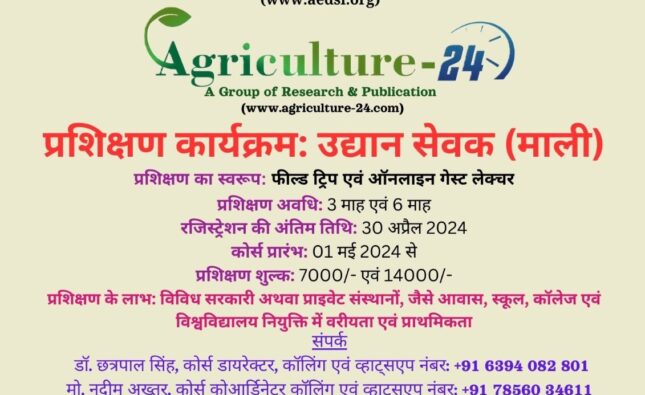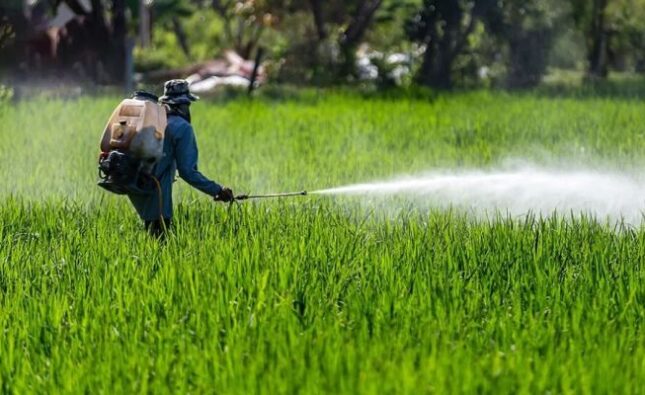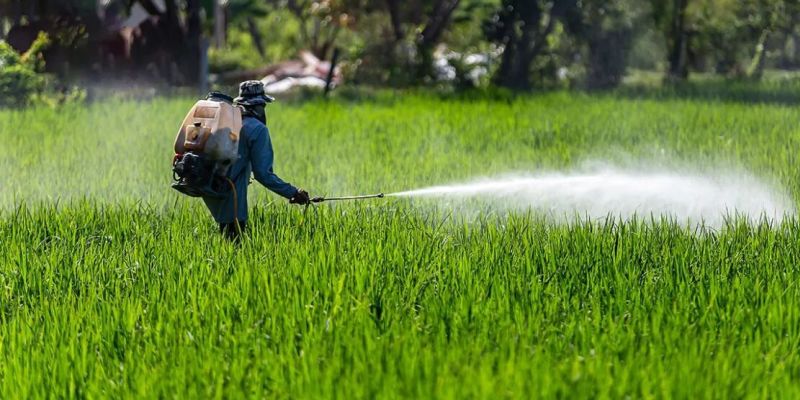Carrier Opportunities in Agriculture Sectors
A career in the agriculture sector offers diverse opportunities for individuals interested in contributing to sustainable food production, environmental conservation, and rural development. The agriculture sector encompasses a wide range of activities, from farming and livestock production to agricultural research, agribusiness management, and agricultural engineering.
Here, we will explore some of the key aspects and potential career paths within the agriculture sector. One of the primary career options in agriculture is farming. Farmers play a crucial role in cultivating crops, managing livestock, and ensuring food security. They need to possess knowledge of agricultural techniques, soil management, crop rotation, and animal husbandry practices. Farmers may choose to specialize in organic farming, hydroponics, or other innovative approaches to meet the increasing demand for sustainable and environmentally friendly agriculture.
Another significant area within the agriculture sector is agricultural research. Agricultural scientists and researchers work on improving crop varieties, developing new farming techniques, and finding solutions to challenges such as pests, diseases, and climate change. They may work in government research institutions, universities, or private companies, conducting experiments, analyzing data, and publishing their findings to contribute to the advancement of agricultural knowledge. Agribusiness is another promising field within agriculture.
It involves the management and operation of agricultural enterprises, such as farms, food processing plants, and agricultural supply chains. Agribusiness professionals handle various aspects, including marketing, sales, logistics, and finance. They need a combination of business skills and agricultural knowledge to ensure the profitability and sustainability of the agricultural ventures.
Agricultural engineering is yet another important career path in the sector. Agricultural engineers design and develop machinery, equipment, and systems used in farming and food processing. They work on enhancing efficiency, reducing waste, and improving the overall productivity of agricultural operations. With the increasing adoption of technology in agriculture, there is a growing demand for agricultural engineers who can integrate automation, robotics, and precision farming techniques into agricultural practices.
Here are some potential career paths in the agriculture sector:
1. Agricultural Scientist/Researcher:
Conduct research to improve crop yield, develop sustainable farming practices, and study the impact of climate change on agriculture. You may work for universities, research institutions, or government agencies.
2. Agronomist:
Provide technical expertise and advice on soil management, crop rotation, pest control, and fertilizer use to optimize crop production. Agronomists work closely with farmers, agricultural companies, and government agencies.
3. Farm Manager:
Oversee the daily operations of a farm, including planning, budgeting, crop selection, livestock management, and machinery maintenance. Farm managers may own their farms or work for large agricultural operations.
4. Agricultural Engineer:
Design and develop machinery, equipment, and structures used in agriculture. This could include irrigation systems, farm buildings, and specialized farming equipment.
5. Agribusiness Manager:
Manage and operate agricultural businesses, such as farm cooperatives, food processing companies, or agricultural supply companies. Responsibilities may include marketing, sales, logistics, and financial management.
6. Agricultural Economist:
Analyze economic data, market trends, and policies to help farmers and agricultural businesses make informed decisions. Agricultural economists work for government agencies, research institutions, or agricultural companies.
7. Food Scientist/Technologist:
Develop new food products, improve food safety, and ensure quality control in food production processes. Food scientists may work in research and development, quality assurance, or regulatory compliance.
8. Sustainable Agriculture Specialist:
Promote environmentally friendly farming practices, conservation, and sustainable resource management. This role involves working with farmers, organizations, and policymakers to implement sustainable agriculture techniques.
9. Agricultural Educator:
Teach agricultural sciences, farming techniques, or agribusiness management at educational institutions, vocational schools, or extension services. Agricultural educators play a vital role in training the next generation of farmers and industry professionals.
10. Agricultural Consultant:
Provide specialized advice and consultancy services to farmers, agricultural businesses, or government agencies. Consultants may focus on areas such as organic farming, precision agriculture, or livestock management.






